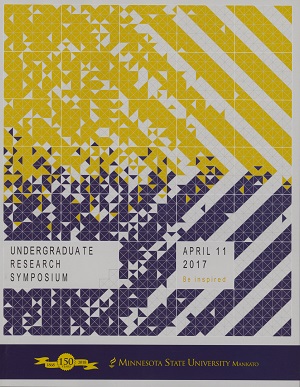Evidence of a Myth
Location
CSU 201
Start Date
11-4-2017 1:05 PM
End Date
11-4-2017 2:05 PM
Student's Major
Art
Student's College
Arts and Humanities
Mentor's Name
Alisa Eimen
Mentor's Department
Art
Mentor's College
Arts and Humanities
Description
Presently, The Bible is not deemed a historical document by the majority of modern scholars. Instead, its accounts are labeled as complete myths. However, if the popular consensus is incorrect, scholars would then have an ancient and historically accurate document at their disposal. Egyptian dynasties largely dictate the current and accepted chronology of history. Each Egyptian king's name and the extent of each reign must be known, to form a complete chronology from c. 3000 BC to c. 300 BC. Many reign lengths are only partially known, while others are completely unknown. The Bible would provide scholars with historical insight as well as a significant resource for accurately dating history. An examination of the historical validity of one Old Testament narrative was organized: archeological findings and biblical interpretations were analyzed and compared concerning the biblical story of Joseph and the Israelites. Over 30 years of research conducted and documented by David Rohl in his book Exodus: Myth or History was thoroughly studied, as were biblical passages from the New King James Bible. Archeological evidence matching the biblical story of Joseph and the Israelites was found in abundance. It was discovered that scholars failed to realize the historical accuracy of The Bible due to their false interpretations of biblical text. Because they had wrongly interpreted biblical passages, they had searched for the evidence in the wrong timeframe. The consequence of this error comes at a price most scholars are not willing to pay: this price is chronological revisionism.
Evidence of a Myth
CSU 201
Presently, The Bible is not deemed a historical document by the majority of modern scholars. Instead, its accounts are labeled as complete myths. However, if the popular consensus is incorrect, scholars would then have an ancient and historically accurate document at their disposal. Egyptian dynasties largely dictate the current and accepted chronology of history. Each Egyptian king's name and the extent of each reign must be known, to form a complete chronology from c. 3000 BC to c. 300 BC. Many reign lengths are only partially known, while others are completely unknown. The Bible would provide scholars with historical insight as well as a significant resource for accurately dating history. An examination of the historical validity of one Old Testament narrative was organized: archeological findings and biblical interpretations were analyzed and compared concerning the biblical story of Joseph and the Israelites. Over 30 years of research conducted and documented by David Rohl in his book Exodus: Myth or History was thoroughly studied, as were biblical passages from the New King James Bible. Archeological evidence matching the biblical story of Joseph and the Israelites was found in abundance. It was discovered that scholars failed to realize the historical accuracy of The Bible due to their false interpretations of biblical text. Because they had wrongly interpreted biblical passages, they had searched for the evidence in the wrong timeframe. The consequence of this error comes at a price most scholars are not willing to pay: this price is chronological revisionism.
Recommended Citation
Palo, Rylie. "Evidence of a Myth." Undergraduate Research Symposium, Mankato, MN, April 11, 2017.
https://cornerstone.lib.mnsu.edu/urs/2017/oral-session-08/4




